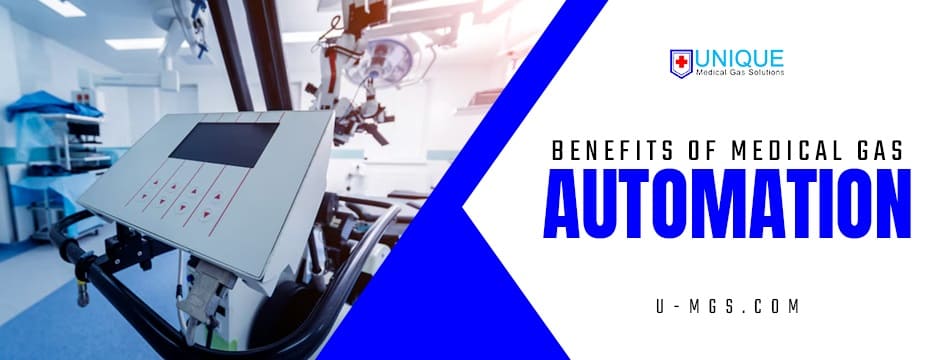In the rapidly advancing medical field, the availability of life-saving gases plays a crucial role in ensuring seamless healthcare delivery. Medical Gas Pipeline Systems (MGPS) is an essential part of modern hospitals, clinics, and healthcare institutions, providing a continuous and controlled supply of oxygen, nitrous oxide, compressed air, and other critical gases. Without an efficient MGPS in Aurangabad, healthcare facilities may face disruptions that could compromise patient care and safety.
Aurangabad, a burgeoning medical hub, is home to numerous hospitals and healthcare centres that require state-of-the-art MGPS to maintain high standards of medical services. As healthcare infrastructure expands, the need for a reliable and well-maintained MGPS becomes more evident. This blog delves into the significance of MGPS, its components, benefits, and the necessity of professional installation and maintenance in Aurangabad.
Understanding Medical Gas Pipeline Systems (MGPS)

MGPS is a centralised system that delivers medical gases from a storage area to different hospital units through a network of pipes. These gases are critical for various medical procedures, including anaesthesia, intensive care, and respiratory support.
The key components of an MGPS include:
- Gas Sources: These can be cylinders, bulk liquid storage tanks, or on-site gas generation plants.
- Pipeline Network: A well-structured network of pipes that distribute gases efficiently.
- Valves and Manifolds: Control systems that regulate and monitor gas pressure and flow.
- Outlet Points: These are strategically placed in hospital rooms, operation theatres, and ICUs to provide direct access to medical gases.
- Alarm Systems: Alerts healthcare professionals about leaks, low-pressure issues, or gas supply interruptions.
The Role of MGPS in the Healthcare Sector
Enhanced Patient Care
MGPS ensures a constant supply of oxygen and other vital gases, which is crucial for critical care units, emergency rooms, and surgical procedures. A steady flow of gases helps in preventing medical complications due to interruptions.
Improved Safety Standards
Cylinder-based systems pose risks such as gas leakage, incorrect handling, and contamination. MGPS in Aurangabad eliminates these risks by centralising the gas supply and reducing manual handling, thus ensuring a safer environment for both patients and healthcare providers.
Operational Efficiency
Hospitals in Aurangabad are experiencing increased patient inflow, making efficiency a priority. MGPS reduces the workload of medical staff by automating gas supply, ensuring that gases are readily available without manual intervention.
Cost-Effectiveness
While the initial installation of MGPS requires investment, it significantly reduces operational costs in the long run. Hospitals save on cylinder procurement, transportation, and frequent refills, leading to substantial cost savings.
Sustainability and Environmental Impact
MGPS minimises waste generation compared to cylinder-based systems, making it a more sustainable option. By reducing the need for disposable gas cylinders, hospitals contribute to lower carbon emissions and environmental conservation.
Challenges in Implementing MGPS in Aurangabad
Despite its advantages, MGPS implementation in Aurangabad faces several challenges:
- Initial Installation Costs: Many healthcare facilities, particularly smaller hospitals, find the upfront cost of MGPS installation to be a barrier.
- Need for Skilled Professionals: MGPS installation and maintenance require trained professionals to ensure compliance with safety standards and optimal functionality.
- Regulatory Compliance: Healthcare facilities must adhere to strict guidelines and safety norms to prevent potential hazards associated with medical gases.
- Regular Maintenance: Like any critical infrastructure, MGPS requires periodic maintenance to function optimally, which can be a challenge for facilities with limited resources.
Best Practices for MGPS Installation and Maintenance
To ensure the benefits of medical gas automation and safety, healthcare facilities should follow these best practices:
Choose the Right System
Hospitals should assess their specific needs before selecting an MGPS. Factors like patient capacity, types of medical procedures conducted, and emergency preparedness should be considered.
Work with Certified Professionals
Hiring certified MGPS engineers and technicians ensures that the system is installed correctly and meets regulatory standards. Regular training and certification updates are essential for maintenance staff.
Implement Regular Inspections
Routine checks help identify leaks, pressure inconsistencies, and other potential issues before they escalate. Hospitals should have a structured inspection schedule in place.
Invest in Quality Components
Using high-quality pipes, valves, and outlet points reduces the risk of malfunctions and prolongs the system’s lifespan. Opting for medical-grade materials ensures compliance with safety norms.
Ensure Proper Documentation
Maintaining detailed records of gas usage, maintenance schedules, and safety inspections helps in regulatory compliance and system optimization.

End Notes
Medical Gas Pipeline Systems (MGPS) is a cornerstone of modern healthcare infrastructure, ensuring the seamless delivery of life-saving gases. In Aurangabad, where healthcare facilities are growing rapidly, investing in a robust MGPS is no longer a luxury but a necessity. From enhancing patient care and safety to improving operational efficiency, MGPS plays a pivotal role in elevating healthcare standards.
For healthcare facilities looking to upgrade their MGPS or install a new system, choosing a reliable provider is crucial. Unique Medical Gas Solutions offers top-tier MGPS in Aurangabad solutions tailored to meet the specific needs of hospitals and healthcare institutions. With expert installation, maintenance, and compliance assurance, we are the go-to partner for ensuring a seamless and efficient medical gas supply system in Aurangabad.




No comment